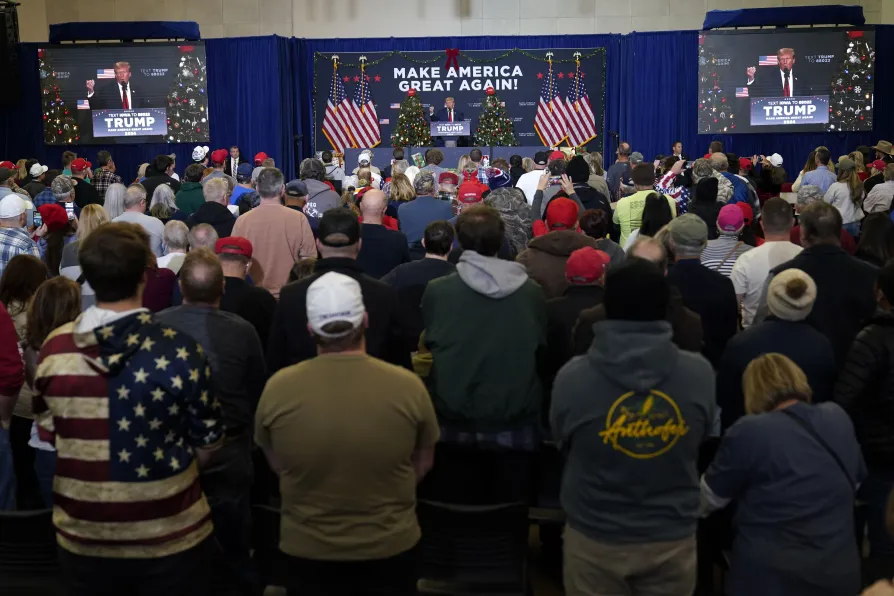
 Former President Donald Trump speaks during a commit to caucus rally, Waterloo, Iowa, December 19, 2023
Former President Donald Trump speaks during a commit to caucus rally, Waterloo, Iowa, December 19, 2023
DONALD TRUMP’S march on the White House in next year’s US presidential election is unlikely to be halted by the Colorado state supreme court.
Any temptation to celebrate Tuesday’s ruling against his name going on the ballot paper in the Republican primary ballot next March is misplaced.
There is no sign that Trump’s indictments in the US courts and Congress have any significant impact on his popularity among a sizeable section of public opinion on the other side of the Atlantic. Most opinion polls continue to put him in front of incumbent Joe Biden by a short head.

Mask-off outbursts by Maga insiders and most strikingly, the destruction and reconstruction of the presidential seat, with a huge new $300m ballroom, means Trump isn’t planning to leave the White House when his term ends, writes LINDA PENTZ GUNTER

Trump’s cruel Bill will deprive millions of essential medical support while escalating deportations and rewarding the super-rich, writes LINDA PENTZ GUNTER












